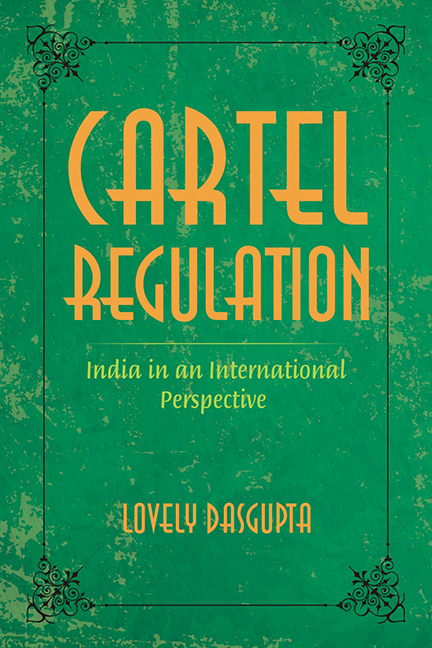Book contents
- Frontmatter
- Contents
- Preface
- Abbreviations
- 1 Introduction
- 2 Cartels: Understanding the Sum and Substance of the Concept
- 3 Cartels and Consumer Interests in the US
- 4 EU, Cartels and Consumer Interests
- 5 India, Cartels and Consumer Interests: The MRTP Phase
- 6 Cartels, Consumer Interests and India Post-MRTP Phase
- Conclusion
- Appendix 1
- Appendix 2
- Bibliography
- Index
5 - India, Cartels and Consumer Interests: The MRTP Phase
Published online by Cambridge University Press: 29 November 2022
- Frontmatter
- Contents
- Preface
- Abbreviations
- 1 Introduction
- 2 Cartels: Understanding the Sum and Substance of the Concept
- 3 Cartels and Consumer Interests in the US
- 4 EU, Cartels and Consumer Interests
- 5 India, Cartels and Consumer Interests: The MRTP Phase
- 6 Cartels, Consumer Interests and India Post-MRTP Phase
- Conclusion
- Appendix 1
- Appendix 2
- Bibliography
- Index
Summary
Context
The discussion on cartels in India has to begin with the analyses of the Monopolies and Restrictive Trade Practices Act, 1969 (hereinafter called the MRTP). More specifically, the treatment of cartels under the MRTP will be analysed to understand India's initial response to cartels. The first step will be to analyse the socio-political context in which the MRTP was enacted. Reference to the Monopolies Inquiry Commission report will further help in establishing the context of the MRTP. The next step would be to analyse the MRTP to understand the substantive law on cartels. Finally, the efficacy of the MRTP will be better understood by evaluating the extent to which cartelization continues to be a reality in India. The questions that get addressed in the process are: (a) how effective was the anti-cartel provision in the MRTP Act in deterring cartels? and (b) how far did consumer interests govern the enactment and enforcement of the anti-cartel provision of the MRTP?
MRTP and anti-cartel measures: Poles apart?
The response of the government of India to the cartel problem was not specific—rather the attempt was to tackle certain anti-competitive issues afflicting the Indian economy at that time. It was for this reason that the government of India enacted the MRTP. The genesis of the MRTP was a concern for the growing income inequalities, with the economic wealth accumulating in the hands of a few large enterprises. The government of India, at the time, followed a command and control regime wherein it determined the manner in which the economic actors functioned. The government controlled, at least to some extent, the allocation of raw material and production, as well as the distribution and pricing of the finished products. The predominant economic philosophy that underlined such a government controlled system was the curbing of monopoly. In real terms, it meant that legislative devices had to be used to prevent dominance of large industrial houses and prevent them from maximizing their profits at the cost of small enterprises and the public sector.
The Industries (Development and Regulation) Act, 1951 (hereinafter called IDRA), for example, was enacted by the government of India for regulating private investment through the licencing procedure. The government of India set the criteria for issuing the industrial licences, thereby ensuring absolute control over the pattern of private investment.
- Type
- Chapter
- Information
- Cartel RegulationIndia in an International Perspective, pp. 124 - 157Publisher: Foundation BooksPrint publication year: 2014



